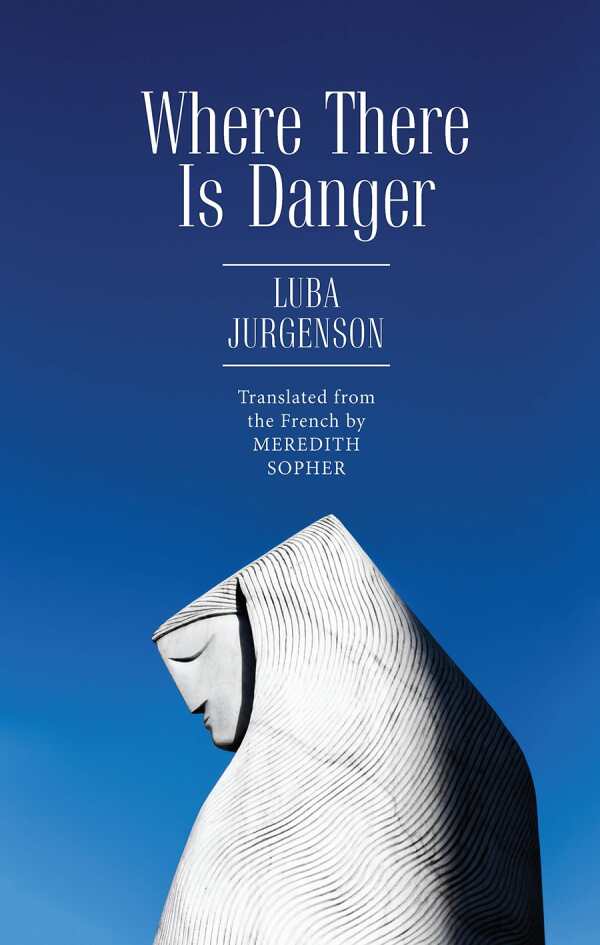Where There Is Danger
In the first essay of her collection Where There Is Danger, Luba Jurgenson writes, “Bilingualism is waiting for its chronicler, someone down-to-earth who follows each step of the bodily clues to the constantly shifting center.” As such a chronicler, she makes striking metaphors of history, language, the body, and the diaspora, hoping to understand the strange reality of being a citizen of two languages and their cultures.
Jurgenson, who grew up in the Soviet Union, fled to France when she was seventeen. The Russian language of her early life speaks to that era; technological advancements are not named within it, dating her understanding and fixing her identity. Speaking French, she grew with the culture as it embraced the late twentieth and early twenty-first centuries. She writes about hiding one’s self within language, and of denying that the self was ever outside of it. Without an accent, she says, her identity is impossible to discern by her use of language alone: she can choose where and when to deploy her linguistic skills, allowing her to pass as native, rather than foreign.
Jurgenson weaves memories through her philosophical discussions of language and identity, recalling her childhood in the Soviet Union and contrasting it with the seeming decadence of France. Her discussions of language are moving and wise, illuminating the particular challenges of translation, covering rhymes, gendered nouns, and cultural references. The text works at a meta level, too, itself translated from French into English by Meredith Sopher, changing the character of Jurgenson’s words in some additional way.
Still, Jurgenson’s voice sounds cohesive and aware, and she interrogates language to examine the origins of thought and purpose. French and Russian have history embedded within their words, should someone care to parse it. In such acts of dissection and revivification, Where There Is Danger is at its brightest.
Reviewed by
Camille-Yvette Welsch
Disclosure: This article is not an endorsement, but a review. The publisher of this book provided free copies of the book to have their book reviewed by a professional reviewer. No fee was paid by the publisher for this review. Foreword Reviews only recommends books that we love. Foreword Magazine, Inc. is disclosing this in accordance with the Federal Trade Commission’s 16 CFR, Part 255.

